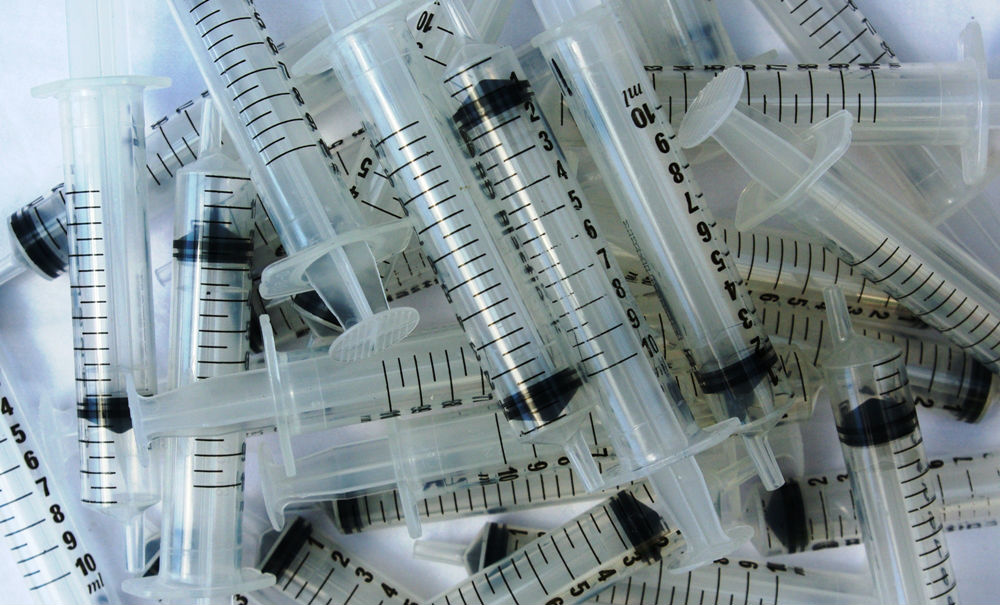The IDDSI Flow Test can be used to evaluate the thickness of a drink in relation to the IDDSI Framework. But the IDDSI Syringe Test (as it is also known) has some problems, issues and limitations that we outline below.
Problems with the IDDSI Syringe Test
The IDDSI Syringe Test uses a 10 ml Luer tip hypodermic syringe as these are likely to be widely available in the clinical setting. IDDSI originally understood these syringes to be internationally standardised to ISO 7886-1. However, it is only the nozzles that are standardised. The dimensions of the barrel can vary between manufacturers which will affect Syringe Test results.
To conform with the IDDSI Syringe Test, the length from the 0 to the 10 ml mark on the syringe’s barrel must be 61.5 mm but not all syringes in all clinical settings conform to this. If the syringe used does not conform, it may give incorrect results.
If a hospital or care home currently uses syringes that do not conform, the IDDSI assumption that the items necessary to carry out their Syringe Test are widely available in the clinical setting is incorrect. It will be necessary for the hospital or care home to change their supplier or order additional syringes just to perform the flow test.
It is also unlikely that the correct syringes will be readily available to people with dysphagia and their carers outside of the clinical setting, in their home, in restaurants and their friends’ and relatives’ homes.
Issues with the Syringe Test
To hold a syringe and block its nozzle with one hand, while filling it with 10 ml of the drink to be tested from a syringe in the other hand, then unblocking the nozzle for exactly 10 seconds before re-blocking it requires a degree of dexterity that some people may lack. This is particularly likely to be the case if the person is elderly, infirm or suffering from any physical or mental impairment or diminished capacity.
Although it is reasonable to assume that most care workers should be able to perform the IDDSI Syringe Test easily after a little practice, not all people with dysphagia are in a clinical setting such as a hospital or care home. Many will be at home, preparing their own drinks.
As dysphagia is often a secondary condition of many other ailments, especially acquired neurological conditions and degenerative diseases, it is realistic to assume that many people with dysphagia may lack the dexterity to perform the IDDSI Syringe Test to test the thickness of their own drinks.
A person with dysphagia who lives at home may have their drinks prepared by a carer. If the carer is their partner, relative or friend, they may also be elderly and infirm and lack the necessary dexterity to perform the test.
Another issue with the IDDSI Syring Test is that it requires a high degree of accuracy. Slight errors in the amount of drink being tested and/or in timing the 10 seconds can lead to incorrect assumptions about a drink’s level of thickness.
Furthermore, there is a risk of scalding when testing a hot drink.
Limitations of the Syringe Test
Although each IDDSI Syringe Test should only take a little over 10 seconds to perform, it is quite “fiddly” and it is generally accepted that it is unlikely to be used to test each and every drink. This is particularly likely to be the case with busy care workers preparing a round of drinks in a care home or on a hospital ward.
Rather, it is anticipated that the IDDSI Syringe Test will be used as a training aid to help care workers “train their eye” and become familiar with what each level of drink thickness is like. Unfortunately, this will not remove subjectivity so user error will remain and drinks will continue to be mixed to a consistency other than that prescribed.
Furthermore, 10ml of the drink is wasted with each test. As explained here, the thickness of a drink can alter over time, particularly if a hot drink cools down or a cold drink warms up. So it is necessary to re-test the thickness of a drink. If 10ml of drink is wasted with each test, this problematic.
The need remains for a low-cost, quick, easy and accurate drink thickness test to make sure that each and every drink is at the prescribed consistency.
That’s why we’ve developed the Viscgo drink thickness tests. You can see our full range of quick, easy, accurate drink thickness test products at our online shop.
What are your experiences of using the IDDSI Syringe Test? Please feel free to leave a response below.
References
© The International Dysphagia Diet Standardisation Initiative 2016 @http://iddsi.org/framework/

